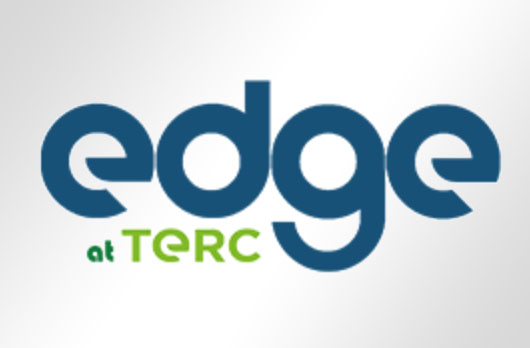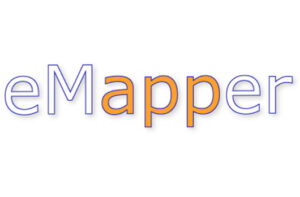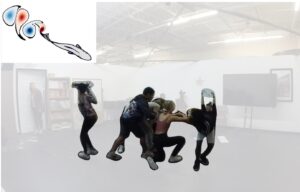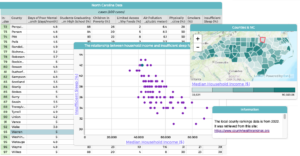INFACT
Including Neurodiversity in Foundational and Applied Computational Thinking
Lead Staff:
Jodi Asbell-ClarkeProject Staff:
Erin BardarIbrahim Dahlstrom-Hakki
Teon Edwards
Kelly Paulson
Renee Pawlowski
Tara Robillard
Elizabeth Rowe
IntroductionFunded by the US Department of Education’s Education Innovation and Research program, INFACT, or Including Neurodiversity in Foundational and Applied Computational Thinking, was a consortium of leading researchers and practitioners in computational thinking (CT) education. The project, led by EdGE at TERC, designed, developed, implemented, and researched INFACT v1.0 — a comprehensive and inclusive program of CT teaching and learning materials for computational thinking in grades 3-8.
SummaryINFACT paid particular attention to the inclusion of a wide range of learners, including neurodivergent learners. INFACT recognized each learner brings a unique set of assets and deficits to every learning situation. By adapting to those strengths and weaknesses and by providing cognitive and social-emotional support, INFACT strove to leverage the talents needed to build a strong STEM workforce.

The resulting INFACT materials embed scaffolds for executive function (EF), and they offer differentiation supports to address the strengths and struggles of each unique learner. They introduce CT practices, such as problem decomposition, pattern recognition, abstraction, and algorithm design through learning games, robotics, and introductory coding activities. Computing structures such as conditionals, loops, variables, and functions are introduced using examples from daily life and are extended into various applications.
Research ActivityINFACT included iterative design research for the first two years, followed by an efficacy study.
The efficacy study was designed with the hypothesis that all students, including neurodivergent learners, will excel in problem solving when it is structured through a variety of CT activities (including games, puzzles, robotics, coding, and physical activities) and supported with EF scaffolds. The INFACT materials were used in 12 treatment classrooms in grades 3–5 for at least 10 hours of implementation. Pre- and post- assessments of CT were administered to these treatment classes, as well as to 12 comparison classes that used 10 hours of other CT teaching and learning materials. Students using the INFACT materials showed a significant improvement in CT learning as compared to students in the comparison classes. And students with EF scores in the lower third of the sample showed the greatest improvement.
This study showed promising evidence that differentiated activities with EF scaffolds situated across several contexts (e.g., games, puzzles, physical activities, robotics, coding) promote effective CT learning in grades 3–5.
See the research article (Jodi Asbell-Clarke, et al., 2024).
Funded by the US Department of Education’s Education Innovation and Research program, INFACT, or Including Neurodiversity in Foundational and Applied Computational Thinking, was a consortium of leading researchers and practitioners in computational thinking (CT) education. The project, led by EdGE at TERC, designed, developed, implemented, and researched INFACT v1.0 — a comprehensive and inclusive program of CT teaching and learning materials for computational thinking in grades 3-8.
INFACT paid particular attention to the inclusion of a wide range of learners, including neurodivergent learners. INFACT recognized each learner brings a unique set of assets and deficits to every learning situation. By adapting to those strengths and weaknesses and by providing cognitive and social-emotional support, INFACT strove to leverage the talents needed to build a strong STEM workforce.

The resulting INFACT materials embed scaffolds for executive function (EF), and they offer differentiation supports to address the strengths and struggles of each unique learner. They introduce CT practices, such as problem decomposition, pattern recognition, abstraction, and algorithm design through learning games, robotics, and introductory coding activities. Computing structures such as conditionals, loops, variables, and functions are introduced using examples from daily life and are extended into various applications.
Research ActivityINFACT included iterative design research for the first two years, followed by an efficacy study.
The efficacy study was designed with the hypothesis that all students, including neurodivergent learners, will excel in problem solving when it is structured through a variety of CT activities (including games, puzzles, robotics, coding, and physical activities) and supported with EF scaffolds. The INFACT materials were used in 12 treatment classrooms in grades 3–5 for at least 10 hours of implementation. Pre- and post- assessments of CT were administered to these treatment classes, as well as to 12 comparison classes that used 10 hours of other CT teaching and learning materials. Students using the INFACT materials showed a significant improvement in CT learning as compared to students in the comparison classes. And students with EF scores in the lower third of the sample showed the greatest improvement.
This study showed promising evidence that differentiated activities with EF scaffolds situated across several contexts (e.g., games, puzzles, physical activities, robotics, coding) promote effective CT learning in grades 3–5.
See the research article (Jodi Asbell-Clarke, et al., 2024).
INFACT included iterative design research for the first two years, followed by an efficacy study.
The efficacy study was designed with the hypothesis that all students, including neurodivergent learners, will excel in problem solving when it is structured through a variety of CT activities (including games, puzzles, robotics, coding, and physical activities) and supported with EF scaffolds. The INFACT materials were used in 12 treatment classrooms in grades 3–5 for at least 10 hours of implementation. Pre- and post- assessments of CT were administered to these treatment classes, as well as to 12 comparison classes that used 10 hours of other CT teaching and learning materials. Students using the INFACT materials showed a significant improvement in CT learning as compared to students in the comparison classes. And students with EF scores in the lower third of the sample showed the greatest improvement.
This study showed promising evidence that differentiated activities with EF scaffolds situated across several contexts (e.g., games, puzzles, physical activities, robotics, coding) promote effective CT learning in grades 3–5.
See the research article (Jodi Asbell-Clarke, et al., 2024).
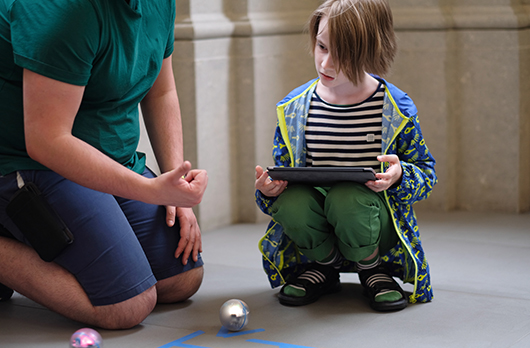
Award Number:
U411C190179
Digital Promise
Florida State University
FunAtomic
Looking Glass Ventures/Edfinity
University of Florida
University of Maryland
Knology
FableVision
10/2019 – 9/2023
FundersUS Department of Education, Education Innovative Research program
Past ProjectThis project is no longer active. To see a list of current TERC projects, please click here.
Share This Page:
